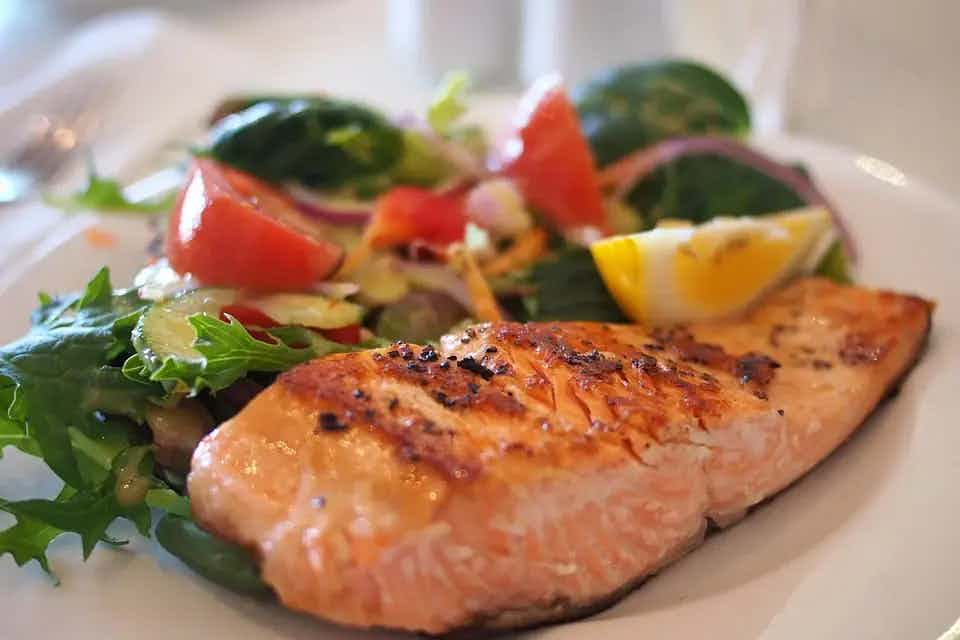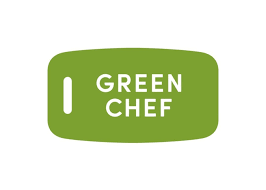You’ve cut out the takeaways, your biscuit tin is empty, and your bolognese is now served on a bed of courgettes rather than white spaghetti. So why don't you see any difference on the scales? Let's look at why you aren't losing weight while following a healthy diet.
Frustrated with food waste or don't know where to start with a shopping list? Try a food subscription box to wash those worries away and put your diet - and finances - on the right track!
A quick explanation of weight loss
Without wishing to get bogged down in the intricate science behind weight loss, it is necessary to give you a basic overview. Weight loss and weight gain are governed by a measurement of calories in (food, drink) and calories out (metabolism, exercise, daily activity).
- If the number of calories you consume is greater than the calories you burn, you will gain weight.
- If the number of calories you consume is fewer than the calories you burn, you will lose weight.
As you can see, there is no mention in the nutritional value of the food you are eating, just a measure of how many calories it contains. When it comes to weight loss, 100 calories of sweets and 100 calories of vegetables are equal.
Obviously, we know that this is not the case. 100 calories of vegetables is healthier, will fill you up better, and could well lead to less snacking in future. But hopefully, this gives you a clue as to why your healthy eating plan may not be as effective as you had hoped.
Healthy yet calorific
A common mistake people make when selecting foods is to assume that because a food is healthy, it is also good for weight loss. Avocados are a great example of this. Avocados are incredibly nutritious and an excellent source of healthy fats and fibre. However, two avocados for breakfast would contribute 644 calories to your daily intake!
Even just one avocado served on toast can be as high as 350-400 calories (depending on the portion size and ingredients). That's not too bad, but believing that this is a healthy choice can lead to bad decisions further down the line. Think, "I had a really healthy breakfast, so I can splurge a bit at lunchtime".
Olive oil is another excellent example of a patently healthy food, but that can be surprisingly calorific. There are many health benefits associated with olive oil, which leads to it being used generously on salads and cooking. But three tablespoons (basically a 4-second drizzle) is about 360 calories!
As you can see, it is effortless to consume a lot more calories than you'd think by eating generous portions of certain healthy foods. Please understand, eating healthy foods such as olive oil and avocado should be encouraged, but be aware of how high in calories they are.
Deceitful packaging
Now that everybody knows the benefits of a high protein diet, companies have begun advertising all sorts of high-protein foods. This is a good thing, but often, companies can be quite deceptive. You'll see certain junk foods with the words "High in protein" on the packaging, but when you look at the actual protein to calorie ratio, it's pretty bad.
Peanut butter is an excellent example of this. You will often see the words "High in protein" on the packaging, which is technically true. Two tablespoons of peanut butter contain 9g of protein! But it also contains 207 calories, almost all of it from fat. Protein contributes just 36 calories out of that 207, only 17% of the total.
But it’s not just protein that gets used deceptively. Foods will also be advertised as “high in fibre”. Often this is true, but again, it only highlights the good without mentioning the bad. “Low Fat” is another example, or “High in iron”.
Technically, all of these food companies are not lying. They are just misrepresenting their product. Peanut butter is not an incredibly healthy snack, nor is it a good source of protein. But it is presented as healthy, and people would assume that it is.
But foods like these can wreck your weight loss goals by being higher in calories than you presume. None of these foods is harmful in small doses, but if too much of your diet consists of them, you will find it difficult to lose weight.
Portion sizes
One of the most common reasons people on healthy diets don't lose weight is that they aren't great at estimating calories. This isn't a criticism; human beings are all terrible at this, and it takes a lot of training (diet coaching) to get better at it.
A 2002 study found that American portion sizes increased significantly in the 1970s and 80s and have continued to grow ever since. This means that the idea of what sized portion to serve at mealtimes has become warped. Regular sized portions in the 1950s would look tiny to most people in the US (and by extension, the Western world in general).
It is this increase in portion sizes that has fuelled the obesity epidemic. Not carbs, not processed foods, not artificial sweeteners, but just the simple act of putting more food on each plate.
Lee Holmes from Supercharged Food gave us another great tip. He told us: "Another way to focus on weight loss is to look inside at your gut health. Your efforts to lose weight when you feel like it's not working for you could be due to a gut flora imbalance. The human digestive system is home to trillions of micro organisms colonising an inner ecosystem. All these bacteria live in a highly organised micro-world with certain species predominating and controlling others. They play a number of vital roles in the body and weight is one of them."
What can you do to combat this?
Here's the good news; the very fact that you have embarked on a healthy diet is a HUGE step forward. Paying attention to what you eat and why will pay dividends over time. We didn't mention this as it was a bit off-topic, but one significant reason why you may not have lost weight so far is that you may not have been dieting for long enough.
Stay the course, and you should start to see results. Here are five tips to help you lose weight while following a healthy diet:
- Add vegetables to your lunch and dinner: leafy greens, red, yellow, orange vegetables, root vegetables, beans and pulses, all of these foods are low in calories, high in nutrition, and they can help to fill you up.
- Have a protein shake: Increasing protein is a great way to increase your metabolism, reduce your snacking, and build and maintain muscle. Protein powders are one of the easiest and most cost-effective ways to achieve this.
- Drink a glass of water midway through your dinner: Most people eat too fast, this can lead to you eating more food than you should (appetite-suppressing hormones can take a while to engage). Stopping halfway through and drinking some water will help slow you down, and help you feel fuller quicker.
- Buy smaller plates and bowls: As portion size is such a big deal, using smaller plates can help you manage your portions better. Crowded plates look fuller than larger plates, which can help trick your mind into creating more realistic portions.
- Snack better: Swap out chocolate ice cream for Greek Yoghurt and chocolate flavoured whey protein. Swap out three chocolate bars per day to one per day. Eat a piece of fruit instead of a bag of crisps. Yes, these are boring solutions, but so very effective. You don’t have to replace all junk food with healthy alternatives but make some positive changes and see the benefits.









